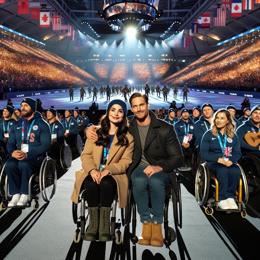Image created by AI
Revolutionary Proposal to Democratize Ownership of the Springboks
In an ambitious bid to reshape how South Africans engage with and benefit from their beloved national rugby team, the Springboks, Altvest and EasyEquities have introduced a novel approach to sports team ownership. This initiative surfaces amidst the decline of a previous $75 million acquisition proposal from Ackerley Sports, putting forward a more inclusive and modern alternative.
The consortium, led by Altvest CEO Warren Wheatley and Easy Equities CEO Charles Savage, proposes a model of fractional ownership. This means that anyone, from the passionate expatriate to the everyday fan enjoying a game at a local pub, could invest in the Springboks with as little as one rand. This proposal not only makes sports investment accessible but also nurtures a deeper national connection with the team, reinforcing the sense of pride and ownership among South Africans.
The duo's vision starkly contrasts with the earlier mentioned proposal from Equity Sports Group, which involved a substantial financial outlay for a 20% stake and included gaining management control, potentially limiting broader public participation. In contrast, Altvest and EasyEquities emphasize inclusivity and transparency, ensuring that control and economic benefits primarily remain within South Africa.
Their plan extends beyond just the Springboks. The consortium aims to apply this inclusive investment model to other sports teams in South Africa, potentially transforming how sports are viewed and supported nationally. Furthermore, they're exploring innovative technology like blockchain and tokenization to enhance accessibility and secure investor engagement.
The proposal is timely, as globally, sports team ownership is seeing increased interest from diverse investor groups, including private equity and family offices. Savage and Wheatley argue that sports assets are not just emotionally valuable but are sound investments, particularly in a team as iconic as the Springboks, celebrated for their multiple World Cup victories and robust fan base.
However, the journey ahead is not without challenges. Regulatory hurdles could delay the implementation of this model for up to three months. Meanwhile, the South African Rugby Union (SARU) is currently in exclusive talks with Equity Sports Group, which could stall progress on this inclusive proposal.
Despite potential roadblocks, Wheatley remains optimistic about the consortium's ability to engage with SARU and other stakeholders, highlighting the importance of a collective effort to ensure the best outcome for South African rugby and its fans. Their vision is clear: to democratize asset ownership in sports, starting with one of the nation’s most cherished symbols of national pride, the Springboks.
If successful, this initiative could revolutionize how South Africans and fans worldwide interact with and invest in their favorite sports teams, blending passion with investment in a uniquely accessible way.










